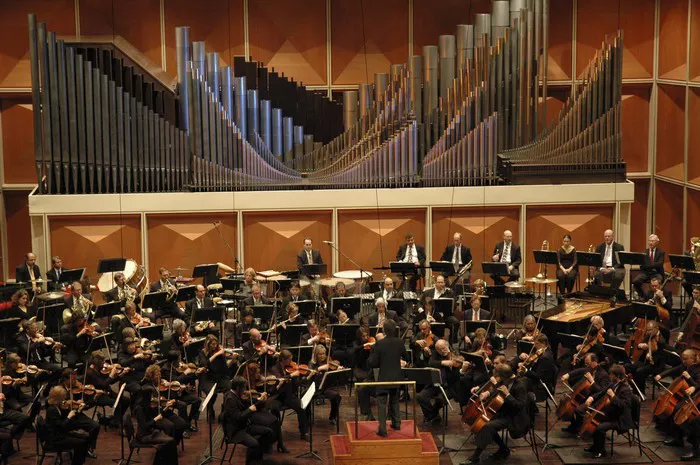Italy, known for its rich cultural heritage, has made significant contributions to the world of classical music. From the grandeur of opera to the intricate compositions of renowned composers, Italian classical music holds a special place in the hearts of music enthusiasts worldwide. In this article, we delve into the history, evolution, key figures, and enduring legacy of Italian classical music.
1. Historical Overview
Italian classical music traces its roots back to the medieval and Renaissance periods when composers like Francesco Landini and Guillaume Dufay pioneered new musical forms and styles. However, it was during the Baroque era that Italy truly flourished as a center of musical innovation. Influential composers such as Claudio Monteverdi, Antonio Vivaldi, and Arcangelo Corelli emerged during this period, contributing significantly to the development of opera, instrumental music, and vocal compositions.
2. The Rise of Opera
Opera, a theatrical art form combining music, drama, and staging, gained immense popularity in Italy during the 17th and 18th centuries. Claudio Monteverdi’s groundbreaking works, including “L’Orfeo” and “Il ritorno d’Ulisse in patria,” marked the transition from early Baroque to the opera seria style. This era also saw the rise of composers like George Frideric Handel, who, although of German descent, made a lasting impact on Italian opera with masterpieces like “Giulio Cesare” and “Rinaldo.”
3. Key Figures in Italian Classical Music
a. Claudio Monteverdi (1567-1643): Widely regarded as one of the pioneers of opera, Monteverdi’s compositions bridged the gap between Renaissance and Baroque music. His emphasis on expressive melodies and dramatic storytelling laid the foundation for the operatic tradition.
b. Antonio Vivaldi (1678-1741): Known as the “Red Priest” due to his red hair and ordination as a Catholic priest, Vivaldi was a prolific composer whose works, especially his concertos and “The Four Seasons,” continue to captivate audiences worldwide.
c. Gioachino Rossini (1792-1868): A master of comedic opera, Rossini’s works, such as “The Barber of Seville” and “La Cenerentola,” showcase his wit, musical brilliance, and ability to create lively, memorable melodies.
d. Giuseppe Verdi (1813-1901): Verdi’s operas, including “La Traviata,” “Aida,” and “Rigoletto,” are staples of the operatic repertoire. His use of powerful emotions, strong characters, and melodic richness exemplifies the Romantic era in Italian music.
e. Giacomo Puccini (1858-1924): Puccini’s operas, such as “La Bohème,” “Tosca,” and “Madama Butterfly,” are celebrated for their lush orchestrations, poignant narratives, and enduring popularity among audiences worldwide.
4. Regional Influences and Styles
Italy’s diverse regions have contributed distinct musical styles to the classical repertoire. The Neapolitan School, centered in Naples, produced composers like Alessandro Scarlatti and Domenico Cimarosa, known for their operatic and instrumental works. The Venetian School, represented by composers like Giovanni Gabrieli and Claudio Merulo, excelled in choral and instrumental music, particularly in the development of the Baroque concerto.
In Southern Italy, the folk traditions of tarantella and saltarello influenced composers such as Ottorino Respighi, who incorporated folk melodies and themes into his orchestral compositions. Additionally, the influence of the Roman School, with composers like Palestrina and Allegri, contributed to the development of sacred music and polyphonic choral works.
5. Musical Forms and Innovations
Italian classical music encompasses a wide range of musical forms and innovations. The opera seria, characterized by its serious themes and virtuosic vocal techniques, was prominent during the Baroque era. In contrast, the opera buffa, or comic opera, introduced lighter themes, humor, and ensemble singing, paving the way for composers like Rossini and Donizetti to showcase their comedic genius.
Instrumental music also flourished in Italy, with composers like Corelli and Vivaldi revolutionizing the concerto form. Vivaldi’s use of programmatic elements and evocative musical imagery in “The Four Seasons” remains a testament to his innovative spirit.
6. Legacy and Global Influence
Italian classical music has left an indelible mark on the global musical landscape. The enduring popularity of Italian operas, from the timeless melodies of Verdi and Puccini to the dramatic intensity of Bellini and Donizetti, continues to attract audiences in prestigious opera houses and concert halls worldwide.
Furthermore, Italian composers and their works have inspired generations of musicians across genres. From the influence of Vivaldi on Baroque music to the impact of Puccini on modern film scores, Italian classical music’s legacy extends far beyond its historical origins.
7. Contemporary Perspectives
In contemporary times, Italian classical music remains vibrant and relevant. Modern composers such as Ludovico Einaudi and Giorgio Battistelli blend traditional techniques with avant-garde elements, pushing the boundaries of classical composition. Meanwhile, Italian opera houses continue to showcase both traditional repertoire and new works, ensuring the continued appreciation and evolution of this rich musical tradition.
8. Conclusion
Italian classical music stands as a testament to centuries of artistic innovation, creativity, and passion. From the grandeur of opera to the intricacies of instrumental compositions, Italy’s musical heritage continues to captivate and inspire audiences worldwide. As we celebrate the contributions of iconic composers and embrace contemporary expressions, the legacy of Italian classical music remains a timeless treasure in the realm of musical artistry.

